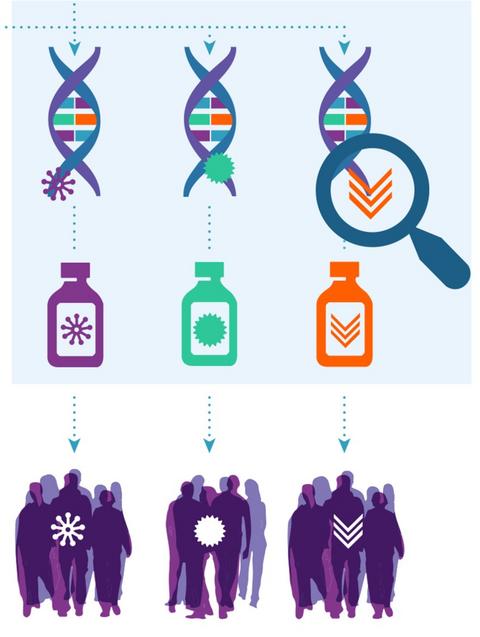
FREDERICK, Md. -- The cancer drug nivolumab may be effective against more types of tumors than previously thought, according to results from a sub-study of the National Cancer Institute Molecular Analysis for Therapy Choice (NCI-MATCH), the world’s largest precision medicine trial.
Nivolumab (marketed as Opdivo) is currently approved to treat several cancers, including colorectal cancers with mismatch repair (MMR) deficiency that have spread despite chemotherapy.
To see how the drug performed against other cancers with defective MMR, the scientists conducting the sub-study—one of the nearly 40 trials that comprise NCI-MATCH—examined its effectiveness in 42 patients who had a non-colorectal MMR-deficient cancer that had progressed during chemotherapy or relapsed.
They found that nivolumab treated non-colorectal MMR-deficient and colorectal MMR-deficient cancers with similar results. Non-colorectal tumors shrank or stopped growing in approximately 36 percent of patients, compared to 31 percent of patients with colorectal tumors who were examined in a previous study that was not affiliated with NCI-MATCH. In addition, 46 percent of patients with non-colorectal cancer and 50 percent of the previously examined patients with colorectal cancer had no tumor growth at 12 months after treatment.
The results were recently published in Journal of Clinical Oncology. (The comparison of tumor growth at 12 months was not included in the publication.)
NCI-MATCH seeks to determine whether precision medicines (treatments that target diseases based on specific biological characteristics) that are known to be effective against certain cancers can treat other cancers with the same mutation. The Eastern Cooperative Oncology Group–American College of Radiology Imaging Network Cancer Research Group is coordinating the trial, with support from several groups, including the Frederick National Laboratory for Cancer Research and the National Cancer Institute.
The Frederick National Laboratory’s contributions include designing the assay used to discover mutations in patients’ cancers, leading a large laboratory network that looks for those mutations, and creating a software platform that analyzes the mutation data and assigns patients to a suitable precision medicine. It remains involved in the trial.
Although 36 percent of patients may not seem to be a significant number, scientists regard it as a good result for most drugs. According to the National Cancer Institute, NCI-MATCH considers a treatment promising if tumors shrink in at least 16 percent of patients. The information gained from the sub-study will help regulators and doctors decide how to expand access to nivolumab.
Nivolumab’s performance is favorable evidence for using precision medicine more broadly to treat cancer, but more time is needed before scientists have a consensus from NCI-MATCH. As of December 20, 18 other sub-studies were ongoing and one was in development.
Media Inquiries
Mary Ellen Hackett
Manager, Communications Office
301-401-8670
